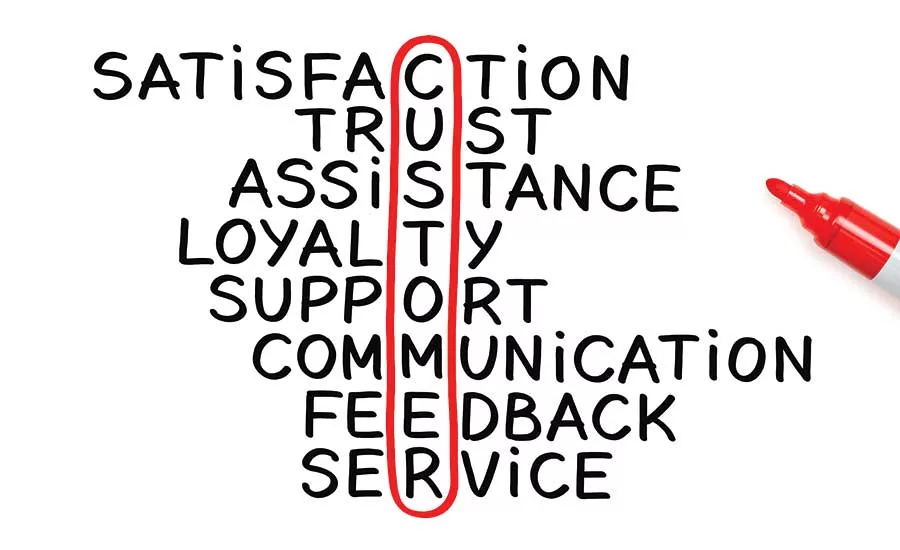The untold profit in customer relationships

We experience it all the time, yet we rarely even think about what’s going on.
The grocer who knows your name, the gas station attendant who is always friendly, the insurance salesperson who really cares about your family — all of these people, and we know their type everywhere, are naturals at the profitable business of relationships. We continue spending money with them and so do countless others for the same reason. Familiarity, friendliness and financial rewards all follow.
But, how costly is it to build and keep a relationship? More importantly, how costly is not building the relationship? You’re about to find out.
In our industry, we’ve gotten so used to being an ‘on-call service’ that we’ve developed a habit of overlooking relationships. But, customers haven’t.
Imperial Financial funded a study for service businesses and found that:
-
37% said the relationship was the most important reason they bought;
-
22% said it was because they owned another product of yours; and
-
14% were referred by a friend or family member.
Add those up and 73% of your business has some relationship tie-in. But, I find that contractors spend up to 80% of their marketing money going after people with whom they have little or no relationship. It’s no wonder why your marketing is not performing for you.
No relationship = no real customer
If you service a customer once and he leaves, you probably lost money on him. You pay on average of $270 to get them but virtually zero to keep them. Plus, customers don’t tell you when they leave you. Their name is still in your database while they’re writing a check to your competition.
This is very costly. When they leave, there go all the sales to that customer and all their referrals. If they buy a system elsewhere, you can take him out of the replacement market for at least eight years.
Why do your customers leave?
In my seminars, contractors always seem convinced that the reason is price. But, Selling Magazine reported that of tens of thousands of customers interviewed, only 4% cited price as the reason they left.
Contractors also felt that having a complaint ranked very high, yet only 12% reported that as sufficient to take their business elsewhere.
However, a full 17% of them took your competition’s offer. The letter or newspaper ad just landed on your customer at the right time, and they took it. There they went.
Yet, the No. 1 reason 55% leave is due to ‘indifference’ shown by the contractor. In other words, they felt you didn’t care if they stayed or not.
What’s it worth to have them stay?
When you lose a customer, you lose all of his future business and all of his referrals to your competition. If a 10-year customer buys one system, has a continuous maintenance agreement and only refers two customers like him a year, just that level of customer is worth more than $90,000 in sales. It’s hard to imagine that, but when you calculate it, the math is not debatable.
This will be even easier to agree with:
-
Loyal customers spend 33% more than non-loyal customers;
-
Referrals among loyal customers are 107% greater than non-loyal customers; and
-
The rate of referral is highest when closest to the point of contact.
This simply encourages staying in touch with customers regularly.
Contractors assign little money to the relationship. When we do have a customer service function, we put it under ‘operations’ and call it an expense instead of marketing, where it is an investment.
This is a critical oversight. Wise contractors are figuring this out and making mountains of money from a small investment here.
What to invest in customer retention
A customer-retention campaign investment will range from 8% to 24% of the total marketing budget. The higher figures would include maintenance agreement promotions. (These are actually sales loyalty programs and not a substitute for a full retention program.)
Most true retention programs find their simplest solution in customer newsletters, thank you cards and other contact pieces. Yet, those more committed to retention also invest in customer service training.
Jay Conrad Levinson of Guerilla Marketing fame said that a customer newsletter is perhaps the best guerilla marketing tool on the planet. The author of “Word-of-Mouth Marketing,” Jerry Wilson (whose books have sold in the millions), said that keeping customers is simply a matter of regular communication. A customer newsletter can work wonders. And, as a side benefit, your competition probably doesn’t do one, so you’ll stand out even more if you do.
Build a fence around your customers with a solid customer retention campaign. Invest in a good, regular customer newsletter that keeps your name and your services in customers’ minds all year long. In time, your customers become ‘unswitchable.’ You’ll get more referrals, greater loyalty and more sales.
Looking for a reprint of this article?
From high-res PDFs to custom plaques, order your copy today!





